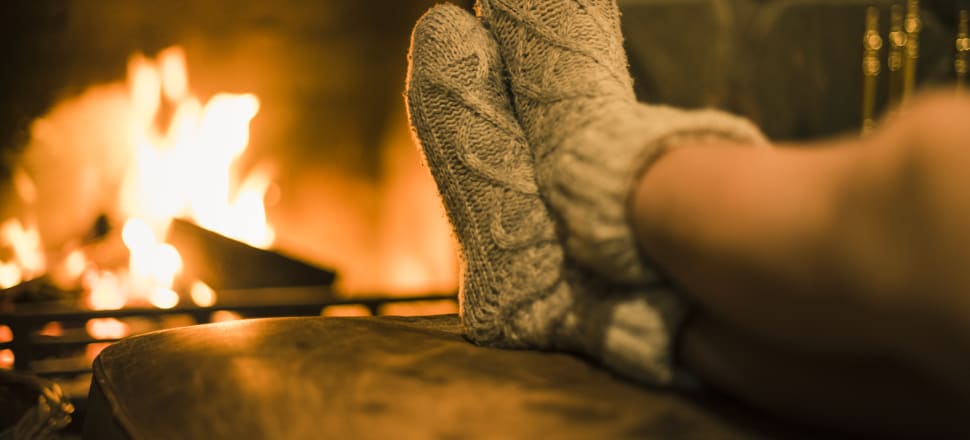
Pharmaceutical giant Pfizer say forewarned is forearmed when it comes to potentially spiking Covid numbers in the winter months
Winter. For many it means finding somebody who sells firewood, eating a lot of soup and pulling the hot water bottle out of the back of the cupboard.
For hospitals, it means a rush as seasonal diseases like RSV fill beds and schedules.
But three years into a global pandemic, is Covid ready to put its name down on the list of seasonal viruses and have its prevalence become one of those signs that winter is here?
READ MORE:
* Covid 'normal' in the eye of the beholder
* Winter plan ignores health advice
Health experts have signalled that as Covid becomes more rooted in each country we will see spikes in cases become more predictable and tied to the seasons.
While the spread of respiratory illnesses can be expected to increase as the temperature drops, Covid is infectious enough to not depend on winter conditions to sustain its level of transmission.
But although it may not be considered a seasonal virus just yet, health organisations and government are taking the advent of the winter as an opportunity to get people thinking about Covid again – especially the million New Zealanders who are at higher risk of a severe case if they get infected.
Our mothers may have been partly right when they told us to put on another layer to avoid catching a cold – while cold weather won’t make you sick if there’s no virus or bug to catch, wintry conditions can facilitate Covid spread.
University of Otago evolutionary biologist Dr Jemma Geoghegan said a range of factors contributed to winter spikes of respiratory disease – the main culprit perhaps the human tendency to stay indoors during cold weather without adequate ventilation.
“There’s also a bit of evidence that they are more easily transmitted in colder air, which facilitates it,” she said.
Research has shown that the Covid virus is able to hang around longer in conditions with less sunlight.
University of Otago epidemiologist Dr Michael Baker said well-established respiratory viral infections such as influenza and RSV were highly seasonal in temperate countries like New Zealand, largely because people spend more time in crowded and poorly-ventilated indoor environments during colder months.
But while this suggests a Covid spike could be imminent, Baker said the virus' high reproduction numbers mean it's less affected by differences in seasonal airborne transmission than diseases like RSV are.
“A new highly-infectious virus like SARS-CoV-2 doesn’t depend on winter conditions to sustain transmission,” he said. “It is highly infectious and is infecting a population with no immunity, except from vaccination and now some accumulating immunity also from prior infections.”
He said while at times the numbers had spiked during the winter, Covid was not yet a seasonal infection.
The first wave as the country began to open up was in the late summer of 2022, before peaking in early spring. The second wave peaked in winter of last year, but ensuing waves came in summer and then autumn.
“So it is not a seasonal infection, though it could eventually become one.”
That’s not to say Covid doesn’t spread more easily in the winter, however. Baker said the physical environmental conditions of the winter months might facilitate the survival and transmission of viruses.
“There is also evidence that cold temperatures can blunt the immune response to viral infections in the upper airways which may make people more susceptible to infections,” he said.
A 2015 study of which Baker was a co-author found a correlation between periods of lower humidity and influenza and pneumonia mortality in Auckland between 1980 and 2009.
But so far this hasn’t tracked over to Covid.
Since the peak of the summer spike, which saw a rolling seven-day average of 6207 cases, the numbers have slacked off to a rolling day average of fewer than 2000.
The current rolling day average of 1180 is in fact lower than it was a month ago.
Geoghegan said this was nothing out of the ordinary and that numbers for RSV and other respiratory illnesses were tracking upwards as expected.
“We don’t usually see a peak in respiratory viruses until later in the winter, it’s more like July or August we see the peak happening,” she said.
This means despite the frigid weather of the past few weeks, winter Covid spikes may lag, giving health authorities more time to ready their winter strategy to ease pressure on the health system.
Pfizer New Zealand has also launched a public health campaign to help Kiwis identify their risk of severe Covid-19 and take proactive steps to manage their health.
Kiwis can assess their own risk by using an online quiz.
Factors such as being over 65 (or 50 for Māori and Pasifika), having compromised immunity or conditions like diabetes or high blood pressure all potentially increase the risk of having a severe bout of the disease, making people more likely to require hospitalisation or further treatment.
It’s a set of categories that covers roughly one million New Zealanders.
Pfizer New Zealand medical director Krishan Thiru said it was a timely moment to launch the campaign and encourage people to take precautions they may have let fall by the wayside, as environmental factors join the list of primary drivers of the pandemic like different variants and lack of immunity.
He said it was vital all Kiwis had a plan to make sure they could manage a Covid infection.
“People use the phrase ‘new normal’, but our view is that the new normal with Covid doesn’t mean ignoring Covid,” he said.

He said the Covid situation in New Zealand was an “ongoing health emergency hidden in plain sight”, where the 39 deaths attributed to the disease in the past week were mostly overlooked by news media and those grown complacent in the pandemic's long tail.
“I’m sure if there was some other condition that was taking on average 35 lives a week it would probably be in the news and people would be more concerned about it. But I think it’s been such a long time now and there’s been confusing information or changing information, and people are a little bit tired – that’s perfectly understandable, but that doesn’t mean we should ignore it completely.”
Hence the public health campaign from the pharmaceutical company, which has hired netballer Maia Wilson as a spokesperson, encouraging Kiwis to think about their level of risk.
Wilson had ongoing heart issues following her second bout of Covid earlier this year, and hopes to help others avoid a similar experience.
“It is so important for Kiwis to understand if they are at risk of becoming really unwell from Covid-19, to talk to their healthcare provider to understand what they can do to help keep themselves safe and have a plan if they need it,” said Wilson.
Wilson has her own ‘Know Plan Go’ checklist up on the fridge so both she and her whānau know what to do immediately if Covid knocks on the door again.
Thiru said speaking to healthcare providers was an important step, which would hopefully be easier for many in the vulnerable categories who need to see health workers frequently for other matters.
But while that may be true for a number of older people or those with exacerbating health conditions, studies have shown both Māori and Pasifika face greater barriers to accessing primary healthcare.
A literature review of healthcare studies in 2021 summarised these barriers into five main themes: practical barriers, poor communication, hostile healthcare environments, primary care barriers and racism.
Thiru said the campaign was putting in extra effort to reach the people it needed to by working with healthcare workers who deal with patients in at-risk groups.







